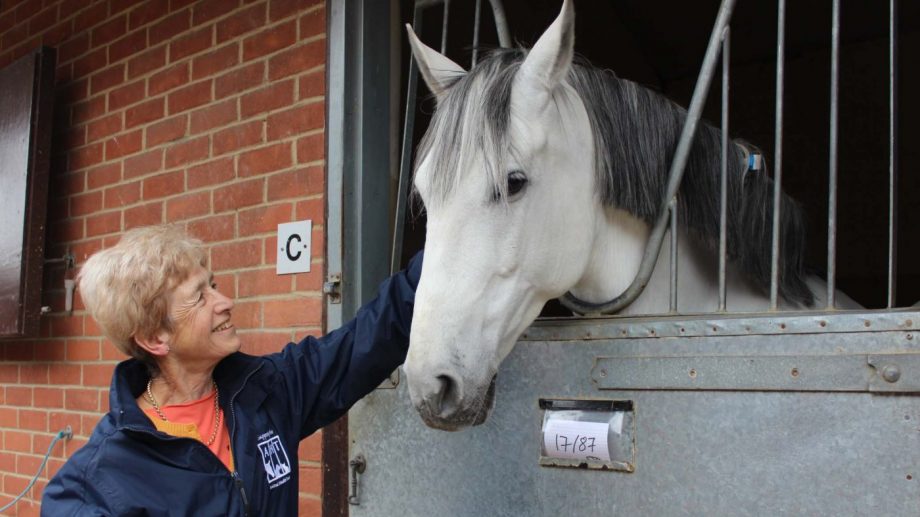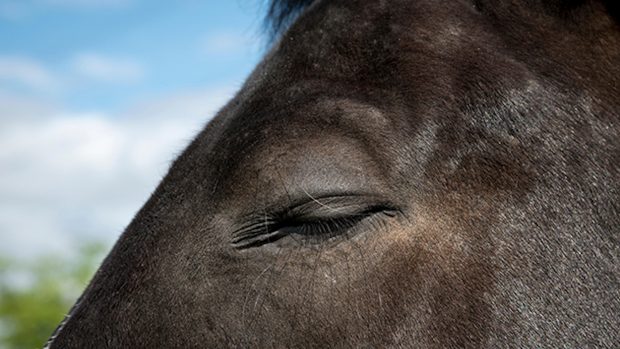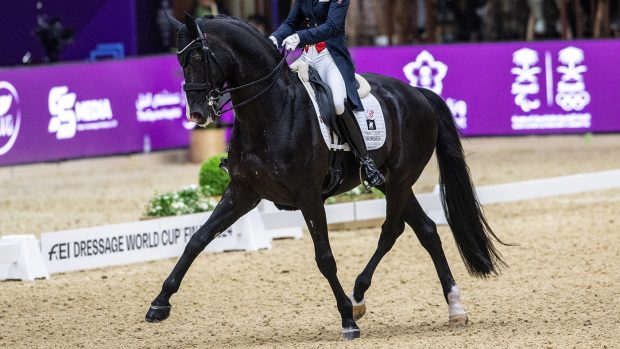PUBLIC perception of joint injections and signs of “ulcers” being caused by other pain have been discussed, as potentially controversial equestrian issues.
At the British Equine Veterinary Association 2021 congress (5–7 September), experts gave presentations on a huge range of topics. One, Controversies Among Us, also covered whether there is any evidence to support the use of oral electrolytes before competition.
Joint medication
US vet Scott Hay, who has long experience, mainly with racehorses but also sport horses, said although he believes joint medication is a “valid part of everyday practice”, for which there is “great justification and good reasons”, he has often come across controversies related to its use.
One is that in the US, there are yards that do it more commonly, which could be caused by their trying to enhance performance; another is whether the medication is associated with increased rates of catastrophic injury.
“There are studies, completed and ongoing, that would indicate some of that, and probably our number one fear when treating lameness, particularly with joint injections, is, are we leading this horse to something that will increase its lameness over time, or even a catastrophic injury?” he said. “It’s a fear you live with every day.”
Another issue is whether the injections are overused. Dr Hay said economics often come into play, and getting a horse to its next race, when there may be better treatment options. He also mentioned medication as scheduled maintenance in some yards; research is under way to find out how often this happens.
“Another controversy is public perception,” he said. “We’re more and more under the watchful eye of the public, on what we do and the risk of injury, and certainly joint injections are often not well perceived.” He added that if a horse gives a high-profile positive dope test and has had joint medication, this puts it back in the public eye whether or not it is related.
“Like it or not, we’re allowed to keep having sport with horses because the public accepts it, so we have a responsibility to make sure public perception is going in the right direction,” he said.
Dr Hay added that although joint medication is entirely valid with an appropriate diagnosis, often assumptions are made without one, and “that’s something we always have to think about”.
Gastric ulcers
Ben Sykes, an associate professor in equine medicine at Massey University, New Zealand, covered the evidence that gastric ulcers in horses causes behavioural and performance issues.
He stressed that squamous gastric disease, which affects the top third of the stomach, and glandular gastric disease, which affects the rest, need to be considered as the separate entities they are.
He discussed studies on performance and behaviour in horses with and without both squamous and glandular disease, but he also cited research that found no correlation between owner-reported clinical signs and glandular disease. This leads to thinking that signs seen by owners as related to ulcers may be caused by other pain issues; he mentioned studies by leading vet Sue Dyson on abnormal equine behaviour during tacking up and mounting being related to pain, and Dr Dyson’s investigations into signs of pain in ridden horses.
He concluded that there is evidence squamous disease can affect behaviour, certainly eating behaviour, and performance, and some evidence glandular disease affects performance.
“Do we have evidence that glandular disease affects behaviour? Then we get into different territory,” he said. “I think we need to step back from talking about these horses presenting for evaluation of gastric disease, to recognise they are presenting for pain.
“I’d say 50% of the horses I see that present for gastroscopy have a non-gastric diagnosis, typically orthopaedic pain… we need to realise what we’re seeing is pain expression, not expression of gastric disease.”
Can electrolytes aid performance?
Bettina Dunkel, an associate professor in equine medicine, looked at whether electrolytes benefit horses and enhance performance.
She cited studies, mainly on endurance and event horses. Asking whether dehydration and electrolyte abnormalities affect performance, she found that although pre-exercise electrolytes disperse quickly to where they are useful, and saline solutions at 20°C increase fluid intake, there is no evidence to suggest electrolytes enhance performance.
“Sometimes when we give supplements, I tell owners it might be good for the horse or not, but it’s unlikely to do harm,” she said, adding that one study suggested this may not be true for electrolytes. The research involved giving them to trail-riding horses for six days and of the 12 supplemented horses, five colicked.
“A word of caution that electrolytes aren’t like other supplements; they can actually do harm,” she said.
You might also be interested in:

The pros and cons of routine joint medication in horses *H&H VIP*
Is routine medication of symptomless joints justifiable? Dr Sue Dyson FRCVS outlines the pros and cons

The best way to feed a horse to avoid gastric ulcers
Read advice from a range of experts on how to best feed a horse with gastric ulcers

Education will help us hear what our horses are trying to say *H&H Plus*

The Ridden Horse Pain Ethogram: how the phrase ‘that’s the way the horse has always gone’ is being challenged
For years it’s been thought that horses who swish their tail, put their ears back and open their mouth when

Subscribe to Horse & Hound this spring for great savings
Horse & Hound magazine, out every Thursday, is packed with all the latest news and reports, as well as interviews, specials, nostalgia, vet and training advice. Find how you can enjoy the magazine delivered to your door every week, plus options to upgrade your subscription to access our online service that brings you breaking news and reports as well as other benefits.





